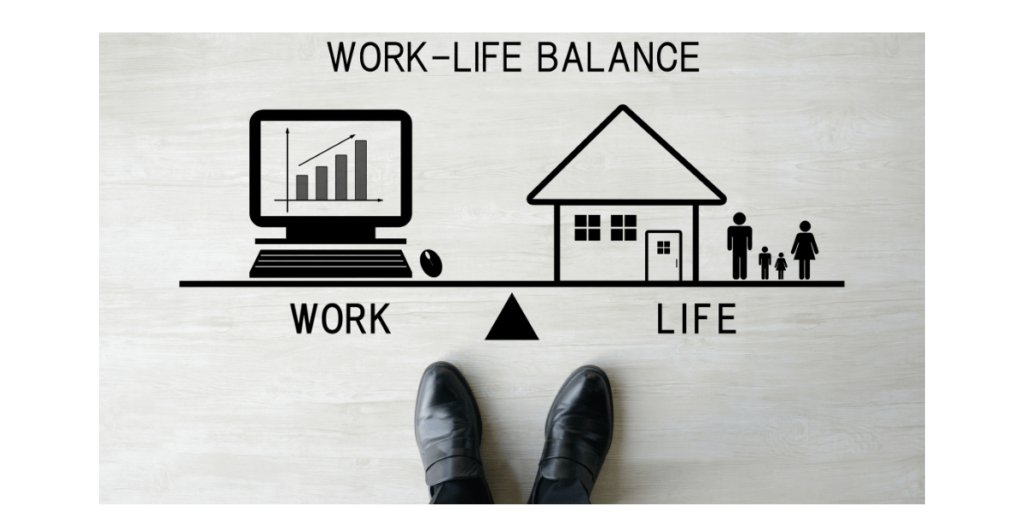Essential Medical Exams for Your 20s: Start Early, Stay Healthy
Transitioning from teenage years into your twenties is an exciting milestone. It’s a decade filled with independence, exploration, and self-discovery. Alongside all the exciting opportunities, however, comes the significant responsibility of maintaining your health through regular preventive care. Establishing a routine of medical exams in your 20s is more than just a healthy habit—it’s a proactive strategy that can help detect and treat potential health issues early, ultimately ensuring that you stay in top shape for what lies ahead.
Preventive care for young adults is key to setting a foundation for a healthy future. Regular health screenings in your 20s can catch issues before they develop into serious problems, saving not only your health but potentially your money and time. With the fast pace of life in this decade, it’s easy to overlook routine check-ups. However, prioritizing your health now can pay off tremendously down the line.
The twenties are when many people start earning, traveling, and possibly even contemplating starting a family. Balancing these life events with your health might seem challenging. But by learning about essential health check-ups and integrating them into your regular schedule, you ensure that your health supports rather than hinders your ambitions and dreams.
This article delves into the core medical exams and screenings you should consider in your twenties, guiding you towards informed and proactive health decisions. From annual physical exams to mental health assessments, let’s explore how you can start early to stay healthy.
Annual Physical Exams and What to Expect
Annual physical exams are a cornerstone of preventive care for young adults. They offer an excellent opportunity for you to discuss any concerns with your healthcare provider and ensure that your body is functioning well. An annual check-up typically includes a comprehensive review of your medical history, current health status, and areas that may need attention.
During a physical exam, a doctor will likely conduct various checks, including measuring your vital signs such as blood pressure, heart rate, and respiratory rate. They will also perform a routine physical examination, which usually covers checking your heart, lungs, abdomen, and reflexes. Additionally, it’s the perfect time to update any necessary vaccinations and address lifestyle factors such as diet, exercise, and stress management.
Moreover, your physical exam can include blood tests to monitor cholesterol levels and blood sugar, among others. These tests are critical for detecting conditions like diabetes or high cholesterol early on. Your doctor might also advise other screenings based on your medical history, family background, or specific risk factors you may have. Establishing a routine now creates a health baseline, which makes spotting undesired changes easier over the years.
Recommended Dental Check-Ups for Oral Health
Oral health is an integral part of overall well-being, yet it’s often overlooked in regular healthcare routines. Regular dental check-ups in your 20s are essential to maintain healthy teeth and gums and to prevent oral issues such as cavities, gum disease, and bad breath from becoming serious problems.
Dentists recommend visiting for a check-up every six months. These visits typically include:
- Teeth cleaning: Professional cleaning removes plaque and tartar that regular brushing can’t eliminate.
- Examination: The dentist checks for cavities, gum disease, and other oral health issues.
- X-rays: In some cases, X-rays might be necessary to spot issues not visible to the naked eye.
Good oral health practices established in your twenties, such as regular brushing, flossing, and routine dental visits, can prevent more severe conditions like periodontal disease. Moreover, a healthy mouth can have positive effects on your overall health, as oral health issues have been linked to heart disease and diabetes.
Taking preventive steps now can save you from extensive dental procedures later and ensure that you maintain a beautiful and healthy smile.
Importance of Skin Exams for Mole and Skin Cancer Checks
Your skin acts as your body’s first line of defense against the environment, which makes its health vital. Regular skin exams in your 20s are crucial, especially given increased UV exposure and other factors that could lead to potential risks like skin cancer. Checking your skin regularly helps you spot any unusual changes early, making treatments more effective.
Self-examination of your skin every month can help you notice any new moles or changes to existing ones. Look for:
- Asymmetry: One half of the mole looks different from the other.
- Border: Edges that are ragged, blurred, or irregular.
- Color: Various colors in the same mole, such as brown, black, or tan.
- Diameter: Moles that are larger than the size of a pencil eraser.
- Evolving: Changes in size, shape, or color.
A professional skin exam by a dermatologist should be part of your annual health regimen. A dermatologist can provide a thorough assessment and, if necessary, a biopsy of suspicious moles. Early detection of any skin abnormalities can significantly affect the outcome and treatment of skin cancer, underscoring the importance of these exams.
Sexual Health Screenings: What and When
Taking charge of your sexual health is an essential aspect of overall wellness. Young adults are at an age where maintaining good sexual health, through regular screenings, can prevent more significant health issues down the road. Understanding what tests you need and when to take them empowers you to make informed decisions about your sexual health.
For sexually active individuals, regular sexually transmitted infection (STI) screenings are recommended. The specific tests depend on your sexual practices and lifestyle but generally include screenings for:
- Chlamydia and Gonorrhea: Typically recommended annually for sexually active women under 25, and for men and women with new or multiple partners.
- HIV: Everyone should get tested at least once, but those with higher risk factors should do so more frequently.
- Syphilis, Hepatitis B, and C: Testing is advised based on your risk factors and medical history.
Routine pap smears are also a part of women’s sexual health exams, beginning at age 21, to check for cervical cancer and abnormalities. Understanding the timing and necessity of these tests helps maintain good health and prevents complications from untreated STIs, which can affect fertility and overall health.
Mental Health Assessments and Why They Matter
Mental health is just as crucial as physical health, especially in your twenties—a period often accompanied by significant life changes and stressors. Mental health assessments can help detect early signs of depression, anxiety, and other conditions, which are vital for timely intervention and effective management.
An initial conversation with your healthcare provider about mental health is an excellent starting point. Many young adults experience stress from career pressures, relationships, and self-identity developments. Recognizing and addressing such stressors is important, as untreated mental health issues can lead to more severe conditions like depression or anxiety disorders.
Mental health screenings might include questionnaires that explore your feelings and experiences. Professional counselors or therapists can provide tailored advice and support if needed. Also, leveraging resources such as cognitive behavioral therapy or support groups can be part of a comprehensive mental health strategy.
Prioritizing mental health now can influence your overall well-being positively and allow you to manage life’s challenges effectively, ensuring all areas of your health are nurtured equally.
Vision Tests: Protecting Your Eyes from a Young Age
Vision tests in your 20s are a preventive measure to ensure long-term eye health. The digital age has increased screen time, which can strain your eyes, making regular eye exams essential. Even if you don’t need vision correction, these tests help in detecting early signs of eye conditions.
A typical vision exam includes several checks:
- Visual acuity test: Measures how clearly you can see.
- Refraction assessment: Determines if you need glasses or contact lenses for correction.
- Eye movements and coordination: Evaluates how well your eyes work together.
Moreover, routine eye exams can detect problems like glaucoma, macular degeneration, and cataracts early, conditions that might otherwise go unnoticed. Maintaining good eye health supports not only vision but can also reflect other health issues, such as diabetes and hypertension, often indicated by changes in your eyes.
Including vision checks as part of your early health check-ups ensures that any emerging vision problems are managed before they impact your life significantly. This preventive approach helps maintain optimal sight and overall health into the future.
Conclusion
Taking control of your health in your 20s begins with routine medical exams and screenings. These early health check-ups establish a foundation for lifelong health, addressing and often preventing issues before they escalate. Being informed about the key areas needing attention allows you to make decisions backed by knowledge and understanding.
Start by scheduling annual physical exams to monitor your overall health. Regular dental check-ups ensure your oral health doesn’t impede your overall well-being, while skin exams prevent potential skin issues from developing into something more serious. Embrace your sexual health by keeping up with necessary screenings, ensuring peace of mind and well-being.
More than ever, prioritizing mental health screenings is crucial as you navigate through many life changes, making sure that you’re equipped to handle stress effectively. Lastly, safeguarding your vision in this digital age protects your eyes from strain and potential future conditions, aiding in maintaining a balanced health profile.
Incorporating these essential exams into your life is a proactive step towards ensuring good health not only now but for decades to come. Prevention and early detection form the bedrock of staying healthy, making informed healthcare decisions pivotal to your wellness strategy.
Recap
- Annual Physical Exams: Vital for monitoring health and early disease detection.
- Dental Check-Ups: Prevent oral health issues and maintain a healthy smile.
- Skin Exams: Crucial for spotting potentially dangerous moles early.
- Sexual Health Screenings: Vital for maintaining overall health and fertility.
- Mental Health Assessments: Helps manage stress and emotional well-being.
- Vision Tests: Necessary for detecting eye conditions early and ensuring long-term eye health.
FAQ
- Why are annual physicals important in my 20s?
Annual physicals help establish a health baseline, monitor changes, and detect issues early. - How often should I go to the dentist?
It’s recommended to visit a dentist every six months for cleaning and an exam. - When should I start getting skin exams?
Regular self-checks should begin now, with professional exams as advised by your doctor. - What sexual health screenings are important?
STI screenings, pap smears, and HIV tests are crucial, depending on your lifestyle. - Why is mental health screening recommended in my 20s?
Early detection of mental health issues can lead to timely intervention and better management. - Are vision tests necessary if I don’t have glasses?
Yes, because they detect early signs of eye conditions unrelated to vision correction. - Can regular dental check-ups prevent health issues?
Yes, they can prevent conditions like gum disease that are linked to other health issues. - How do I know if a mole is concerning during a skin check?
Use the ABCDE method – Asymmetry, Border, Color, Diameter, and Evolving features of a mole.
References
- National Institutes of Health. (2021). “The Importance of Preventive Care in Young Adults.” NIH.
- American Dental Association. (2021). “Regular Dental Visits Are Important.” ADA.
- American Academy of Dermatology. (2022). “How to Perform a Skin Self-Exam.” AAD.



